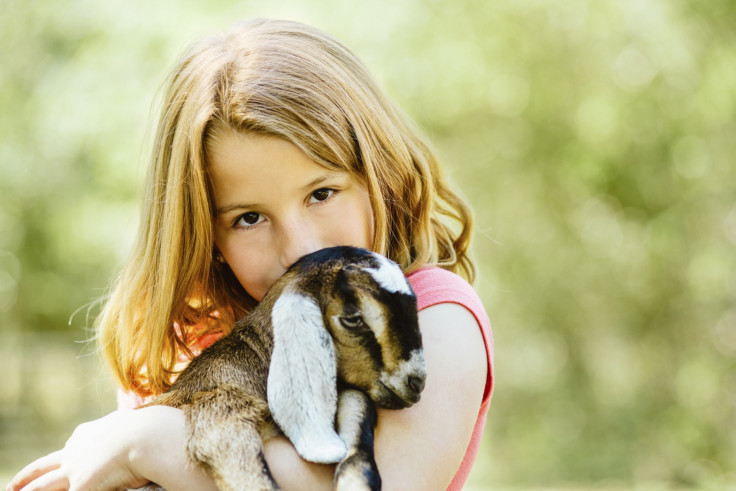Goats gaze at humans lovingly just like dogs do pointing to complex communication
Goats found to communicate and interact with humans even though undomesticated.
Goats look to people for help in the same way dogs do, scientists have discovered. Experiments looking at interactions between goats and humans reveal they have the capacity to communicate with us in the same way our pets do. This suggests domestication has a bigger impact on our interactions with animals than previously believed.
Researchers from Queen Mary University of London trained goats to take a lid off a box to get a food reward. Eventually, they made the reward inaccessible by fixing the lid to the box. The 32 goats were then split into two groups – one was presented with the sealed box with a human facing them, the other with the human looking away from them.
Findings published in the Royal Society journal Biology Letters, showed goats would look to the human for help, focusing their gaze between them and the closed box. When the person was facing the goat, the gaze was held for longer and they sought help earlier.
The research has broad implications for human/animal communication. Christian Nawroth, first author of the study, said: "Goats gaze at humans in the same way as dogs do when asking for a treat that is out of reach, for example. Our results provide strong evidence for complex communication directed at humans in a species that was domesticated primarily for agricultural production, and show similarities with animals bred to become pets or working animals, such as dogs and horses."

Dogs' ability to understand humans was thought to have resulted from changes to their brains over thousands of years of domestication. The latest findings potentially suggest dogs are not necessarily as special in their ability to communicate with humans as thought.
Goats were domesticated as livestock around 10,000 years ago. "Goats show human-directed visual orienting behaviour similar to the referential and intentional communication shown in hominoids, which is also evident in companion animals such as dogs and horses," the team wrote. "This challenges the view that a specific kind of domestication, i.e. the selection for companionship, has led to the development of complex communication with humans in domestic animals."
Lead author Alan McElligott added: "From our earlier research, we already know that goats are smarter than their reputation suggests, but these results show how they can communicate and interact with their human handlers even though they were not domesticated as pets or working animals."
While they may be excellent communicators, goats are a big commitment as pets. Read the RSPCA guide on keeping a goat here.
© Copyright IBTimes 2025. All rights reserved.






















